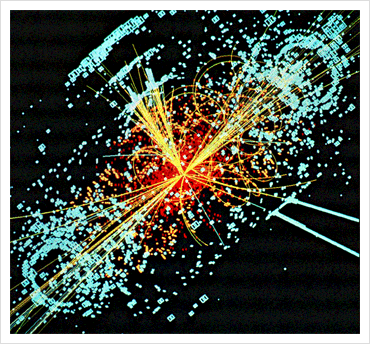"discovery" entries

New life for used ebooks
Old ebooks and clever thinking can create new opportunities for publishers.
This post originally appeared on Joe Wikert’s Publishing 2020 Blog (“The Used Ebook Opportunity“). This version has been lightly edited.
I’ve got quite a few ebooks in two different accounts that I’ve read and will never read again. I’ll bet you do, too. In the print world, we’d pass those along to friends, resell them or donate them to the local library. Good luck doing any of those things with an ebook.
Once you buy an ebook, you’re pretty much stuck with it. That’s yet another reason why consumers want low ebook prices. Ebooks are lacking some of the basic features of a print book, so of course they should be lower-priced. I realize that’s not the only reason consumers want low ebook prices, but it’s definitely a contributing factor. I’d be willing to pay more for an ebook if I knew I could pass it along to someone else when I’m finished with it.
The opportunity in the used ebook market isn’t about higher prices, though. It’s about expanding the ebook ecosystem.
The used print book market helps with discovery and affordability. The publisher and author already got their share on the initial sale of that book. Although they may feel they’re losing the next sale, I’d argue that the content is reaching an audience that probably wouldn’t have paid for the original work anyway, even if the used book market didn’t exist.
Rather than looking at the used book world as an annoyance, it’s time for publishers to think about the opportunities it could present for ebooks. Read more…

Discovering science
The excitement of science is tied to challenging assumptions about how things work.
The discovery of the Higgs boson gave us a window into the way science works. We’re over the hype and the high expectations kindled by last year’s pre-announcement. We’ve seen the moving personal interest story about Peter Higgs and how this discovery validates predictions he made almost 50 years ago, and which ones weren’t at the time thought “relevant.” Now we have an opportunity to do something more: to take a look at how science works and see what it is made of.
Discovery
 First and foremost: Science is about discovery. While the Higgs boson was the last piece in the puzzle for the Standard Model, the search for the Higgs wasn’t ultimately about verifying the Standard Model. It has predicted a lot of things successfully; it’s pointless to say that it hasn’t served us well. A couple of years ago, I asked some physicists what would happen if they didn’t find the Higgs, and the answer was uniformly: “That would be the coolest thing ever! We’d have to develop a new understanding of how particle physics works.” At the time, I pointed out that not finding the Higgs might be exciting to physicists, but it would certainly be disastrous for the funding of high-energy physics projects. (“What? We spent all this money to build you a machine to find this particle, and now you say that particle doesn’t even exist?”) But science must move forward, and the desire to rebuild quantum mechanics trumps funding.
First and foremost: Science is about discovery. While the Higgs boson was the last piece in the puzzle for the Standard Model, the search for the Higgs wasn’t ultimately about verifying the Standard Model. It has predicted a lot of things successfully; it’s pointless to say that it hasn’t served us well. A couple of years ago, I asked some physicists what would happen if they didn’t find the Higgs, and the answer was uniformly: “That would be the coolest thing ever! We’d have to develop a new understanding of how particle physics works.” At the time, I pointed out that not finding the Higgs might be exciting to physicists, but it would certainly be disastrous for the funding of high-energy physics projects. (“What? We spent all this money to build you a machine to find this particle, and now you say that particle doesn’t even exist?”) But science must move forward, and the desire to rebuild quantum mechanics trumps funding.
Now that we have the Higgs (or something like it), physicists are hoping for a “strange” Higgs: a particle that differs from the Higgs predicted by the Standard model in some ways, a particle that requires a new theory. Indeed, to Nobel laureate Steven Weinberg, a Higgs that is exactly the Higgs predicted by the Standard Model would be a “nightmare.” Discovering something that’s more or less exactly what was predicted isn’t fun, and it isn’t interesting. And furthermore, there are other hints that there’s a lot of work to be done: dark matter and dark energy certainly hint at a physics that doesn’t fit into our current understanding. One irony of the Higgs is that, even if it’s “strange,” it focused too much attention on big, expensive science, to the detriment of valuable, though less dramatic (and less expensive) work.

Discovery and data go hand in hand
The fourth in a series looking at the major themes of this year's TOC conference.
Several overriding themes permeated this year's Tools of Change for Publishing conference. The fourth in a series looking at five of the major themes, here we take a look at discovery in publishing.

Helping educators find the right stuff
The Learning Registry looks to crack the education resource discovery problem.
There are countless repositories of high-quality content available to teachers, but it is still nearly impossible to find content to use with a particular lesson plan for a particular grade aligned to particular standards. That's where the Department of Education's new Learning Registry comes in.

Why an ebook still needs an index
An index in an ebook offers a level of discovery search can't touch.
Why should digital publishers invest in index creation? Because ebooks that give readers efficient ways to access what they need are ebooks that will sell.

